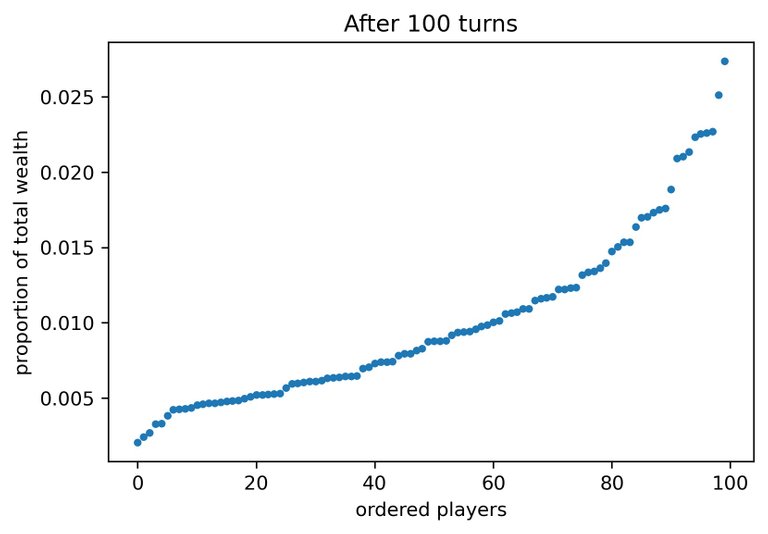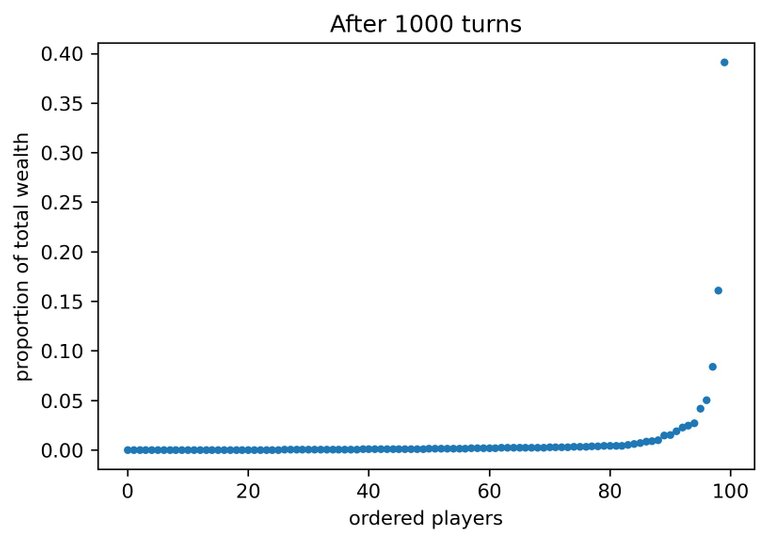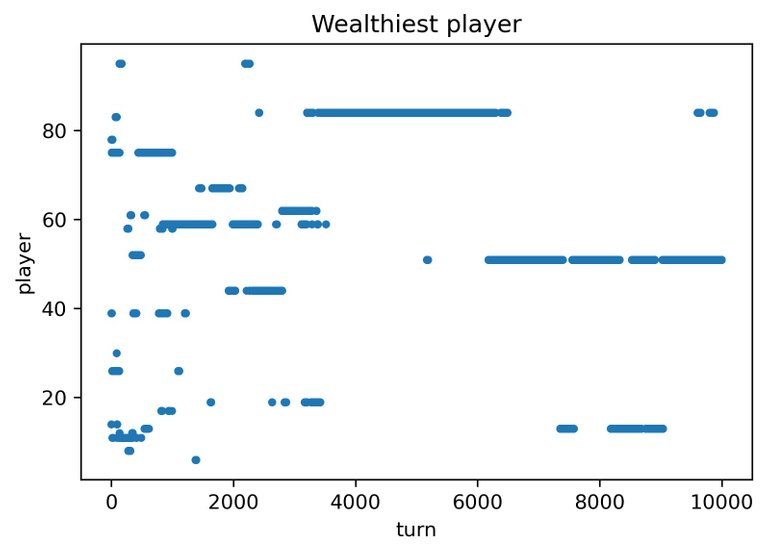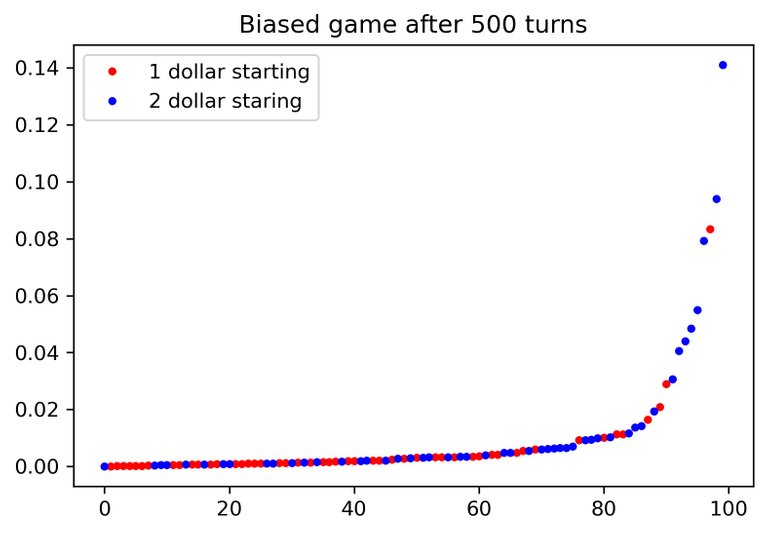A long while back I wrote a post about how unbiased randomness gives rise to extreme inequality. The underlying dynamics is that a few individuals have a lucky streak. This lucky streak results in an advantage which gives rise to a snowballing effect that leads to an inequal distribution where only a few individuals have the vast majority of all the wealth. An additional idea with which we could extend the system is seeing how unfair initial conditions affect wealth.
The unbiased wealth game is that we give a 100 players each 1 dollar. At each turn their dollar can increase, stay the same, or decrease. To model this a random rate between 0.9 and 1.1 will be given to each player. This rate will change every turn. Their wealth will be equal to their current wealth times this random rage. It would appear that all the players have the same odds at this game. But after a 100 turns we can already see that a few players are appearing to be more 'lucky' than others.

If we wait for 1000 turns than we see in this game that 1 player has 40% of all the wealth in the game and the majority has only a tiny fraction of the wealth.

If we look after many turns then we typically see that there is some competition among the most wealthy players

It jumps between player 13, 51, 84.
This game is unbiased because everybody is treated the same by the game. It could have been anybody who ended up with 40% of all the wealth. However, we can now make the system unfair. Suppose we give the first 50 players 1 dollar to start with and the next 50 players 2 dollars to start with. How will this affect the outcome?

So let's first investigate how the top 50 is subdivided. To make it accurate we run the experiment many times and then take the average. We see that the top 50 is made up out of 45% 1 dollar starters and 55% 2 dollar starters. That doesn't seem so unfair given that the second group started with twice the wealth!
Now let's investigate the extreme end of the spectrum. Did the wealthiest players start with 1 or 2 dollars? Running the experiment many times we observe that 33.33% of the time the top player started with 1 dollar! When we start thinking about this in numbers it is not that weird because with twice the starting fund you are twice as likely to become the wealthiest player.
Cat tax

